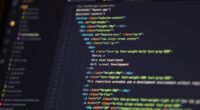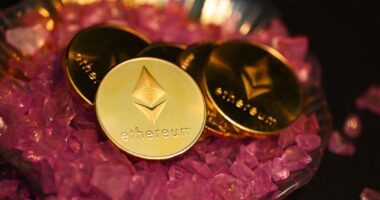Blockchain technology serves as the backbone of the modern digital economy, providing a decentralized and transparent framework for transactions and data management. At its core, a blockchain is a distributed ledger that records transactions across multiple computers in such a way that the registered information cannot be altered retroactively without the consensus of the network. This immutability is achieved through cryptographic hashing, which ensures that each block of data is securely linked to the previous one, forming a chain.
The decentralized nature of blockchain eliminates the need for intermediaries, thereby reducing costs and increasing efficiency. This technology has found applications beyond cryptocurrencies, influencing sectors such as supply chain management, healthcare, and finance, where trust and transparency are paramount. Understanding blockchain technology also involves grasping its various consensus mechanisms, which are essential for validating transactions and maintaining the integrity of the network.
Popular methods include Proof of Work (PoW) and Proof of Stake (PoS), each with its own advantages and drawbacks. PoW, for instance, requires significant computational power to solve complex mathematical problems, making it energy-intensive but highly secure. On the other hand, PoS allows validators to create new blocks based on the number of coins they hold and are willing to “stake,” promoting energy efficiency but raising questions about centralization.
As blockchain continues to evolve, new consensus algorithms are being developed to address scalability and security challenges, making it crucial for professionals in the field to stay informed about these advancements.
Key Takeaways
- Blockchain technology is a decentralized, distributed ledger that records transactions across multiple computers.
- Smart contract development requires proficiency in programming languages like Solidity and understanding of blockchain platforms like Ethereum.
- Knowledge of NFT standards and protocols such as ERC-721 and ERC-1155 is essential for creating and managing non-fungible tokens.
- Familiarity with cryptography and security is crucial for ensuring the integrity and confidentiality of NFT transactions and data.
- Proficiency in programming languages such as Solidity, JavaScript, and Python is necessary for developing NFTs and related applications.
Proficiency in Smart Contract Development
Understanding Smart Contracts
Smart contracts are self-executing contracts that have the terms of the agreement directly written into code. They operate on blockchain platforms, enabling automated transactions without the need for intermediaries. Proficiency in smart contract development is essential for anyone looking to leverage blockchain technology effectively.
Key Skills for Smart Contract Development
Developers must be well-versed in programming languages such as Solidity, which is primarily used for creating smart contracts on the Ethereum platform. Understanding how to write efficient and secure smart contracts is critical, as poorly designed contracts can lead to vulnerabilities that may be exploited by malicious actors. Moreover, developers must also be familiar with testing frameworks and tools that help ensure the reliability and security of their contracts before deployment.
Optimizing Smart Contract Performance
In addition to coding skills, a deep understanding of the underlying principles of smart contracts is necessary. This includes knowledge of gas fees, which are transaction costs paid to miners for processing transactions on the Ethereum network. Developers must optimize their contracts to minimize gas usage while maintaining functionality. Furthermore, they should be aware of common pitfalls in smart contract development, such as reentrancy attacks and integer overflow errors.
Knowledge of NFT Standards and Protocols

Non-fungible tokens (NFTs) have revolutionized the way we perceive ownership and value in the digital realm. A solid understanding of NFT standards and protocols is crucial for anyone involved in this burgeoning field. The most widely recognized standard is ERC-721, which defines a minimum interface for NFTs on the Ethereum blockchain.
This standard allows for unique tokens that can represent ownership of digital assets such as art, music, or virtual real estate. Additionally, ERC-1155 has emerged as a more versatile standard that enables the creation of both fungible and non-fungible tokens within a single contract, streamlining the process for developers and users alike. Knowledge of these standards extends beyond mere technical specifications; it also encompasses an understanding of how they interact with various platforms and marketplaces.
For instance, NFTs created under these standards can be bought, sold, or traded on platforms like OpenSea or Rarible, which have become popular venues for digital art and collectibles. Familiarity with these ecosystems allows developers and creators to navigate the complexities of NFT transactions effectively. Moreover, staying updated on emerging standards and protocols is vital as the NFT landscape continues to evolve rapidly, with new innovations constantly reshaping how digital assets are created and exchanged.
Familiarity with Cryptography and Security
Cryptography plays a pivotal role in ensuring the security and integrity of blockchain networks and their associated applications. A comprehensive understanding of cryptographic principles is essential for anyone working within this domain. This includes knowledge of hashing algorithms like SHA-256, which underpins Bitcoin’s security model, as well as public-key cryptography that facilitates secure transactions between parties without requiring trust in a central authority.
By leveraging these cryptographic techniques, developers can create secure systems that protect user data and prevent unauthorized access or tampering. In addition to foundational cryptographic concepts, professionals must also be aware of potential security vulnerabilities that can arise within blockchain applications. For instance, understanding common attack vectors such as Sybil attacks or 51% attacks is crucial for designing resilient systems.
Furthermore, developers should implement best practices for securing smart contracts, including thorough code audits and employing formal verification methods to ensure correctness. As cyber threats continue to evolve, staying informed about advancements in cryptography and security measures will be vital for maintaining trust in blockchain technologies.
Proficiency in Programming Languages
A strong foundation in programming languages is indispensable for anyone looking to excel in blockchain development and NFT creation. While Solidity is the most prominent language for writing smart contracts on Ethereum, familiarity with other languages such as JavaScript, Python, or Go can significantly enhance a developer’s versatility. JavaScript is particularly useful for building decentralized applications (dApps) that interact with smart contracts through web interfaces.
Python’s simplicity makes it an excellent choice for scripting and automation tasks within blockchain projects. Additionally, Go has gained popularity due to its performance efficiency and suitability for building scalable blockchain solutions. Beyond merely knowing programming languages, developers must also understand how to utilize various frameworks and libraries that facilitate blockchain development.
Tools like Truffle or Hardhat provide essential environments for testing and deploying smart contracts efficiently. Moreover, libraries such as Web3.js enable seamless interaction between dApps and Ethereum nodes. By mastering these programming languages and associated tools, developers can create innovative solutions that harness the full potential of blockchain technology while ensuring optimal performance and user experience.
Experience with NFT Marketplaces and Platforms

Navigating the NFT marketplace landscape requires a nuanced understanding of various platforms where digital assets are bought, sold, or traded. Each marketplace has its unique features, user base, and fee structures that can significantly impact creators and collectors alike. For instance, OpenSea is one of the largest NFT marketplaces, offering a wide range of digital assets from art to virtual real estate.
In contrast, platforms like Foundation focus on curated art collections and community-driven sales processes. Familiarity with these marketplaces allows creators to choose the right platform for their work while maximizing visibility and potential sales. Moreover, experience with NFT marketplaces extends beyond mere participation; it involves understanding how to effectively market digital assets within these ecosystems.
This includes strategies for promoting artwork through social media channels or leveraging collaborations with other artists to reach broader audiences. Additionally, knowledge of analytics tools can help creators track their sales performance and understand market trends better. As the NFT space continues to grow rapidly, staying informed about emerging platforms and evolving marketplace dynamics will be crucial for success in this competitive environment.
Understanding of Digital Art and Collectibles
The rise of NFTs has transformed the landscape of digital art and collectibles, creating new opportunities for artists while challenging traditional notions of ownership and value. A deep understanding of digital art forms is essential for anyone involved in this space. This includes familiarity with various artistic styles, techniques, and mediums that artists employ to create compelling digital works.
Additionally, recognizing the cultural significance of digital art movements can provide valuable context for collectors seeking meaningful pieces that resonate with contemporary themes. Furthermore, understanding collectibles within the NFT ecosystem involves grasping what makes certain items desirable or valuable to collectors. Factors such as rarity, provenance, and community engagement play significant roles in determining an asset’s worth.
For instance, limited edition drops or collaborations between renowned artists can drive demand significantly. By cultivating an appreciation for both digital art and collectibles, professionals can better navigate this dynamic market while fostering connections between creators and collectors that enhance the overall ecosystem.
Ability to Adapt to Rapidly Evolving NFT Ecosystem
The NFT ecosystem is characterized by its rapid evolution, driven by technological advancements and shifting cultural trends. Professionals in this field must possess a strong ability to adapt to these changes while remaining proactive in their approach to learning new skills and concepts. This adaptability involves staying informed about emerging technologies such as layer-2 solutions that aim to improve scalability on existing blockchains or new protocols designed specifically for NFTs.
By embracing continuous learning opportunities—whether through online courses, industry conferences, or community engagement—individuals can position themselves at the forefront of innovation within this dynamic landscape. Moreover, adaptability also encompasses an openness to experimentation with new ideas and approaches in NFT creation and marketing strategies. As artists explore novel ways to engage audiences—such as interactive experiences or gamified elements—professionals must be willing to embrace these trends while assessing their potential impact on market dynamics.
By fostering a mindset geared toward innovation and flexibility, individuals can thrive amidst uncertainty while contributing meaningfully to the ongoing evolution of the NFT ecosystem.
FAQs
What are NFT developer jobs?
NFT developer jobs are positions that involve creating, developing, and maintaining non-fungible tokens (NFTs) on blockchain platforms. NFT developers work with blockchain technology to create unique digital assets that are indivisible and cannot be exchanged on a like-for-like basis.
What skills are essential for NFT developer jobs?
Essential skills for NFT developer jobs include proficiency in blockchain technology, smart contract development, understanding of NFT standards (such as ERC-721 and ERC-1155), knowledge of decentralized finance (DeFi) protocols, and experience with programming languages like Solidity and JavaScript.
What knowledge is required for NFT developer jobs?
Knowledge required for NFT developer jobs includes an understanding of blockchain fundamentals, NFT marketplaces and platforms, token standards, digital asset ownership, decentralized applications (dApps), and the ability to work with cryptographic algorithms and security protocols.
What are the career prospects for NFT developers?
The demand for NFT developers is expected to grow as the NFT market continues to expand. NFT developers can work for blockchain companies, NFT marketplaces, gaming companies, digital art platforms, and other organizations looking to leverage NFT technology. Additionally, NFT developers may have opportunities to work on freelance projects and create their own NFT-based products.





